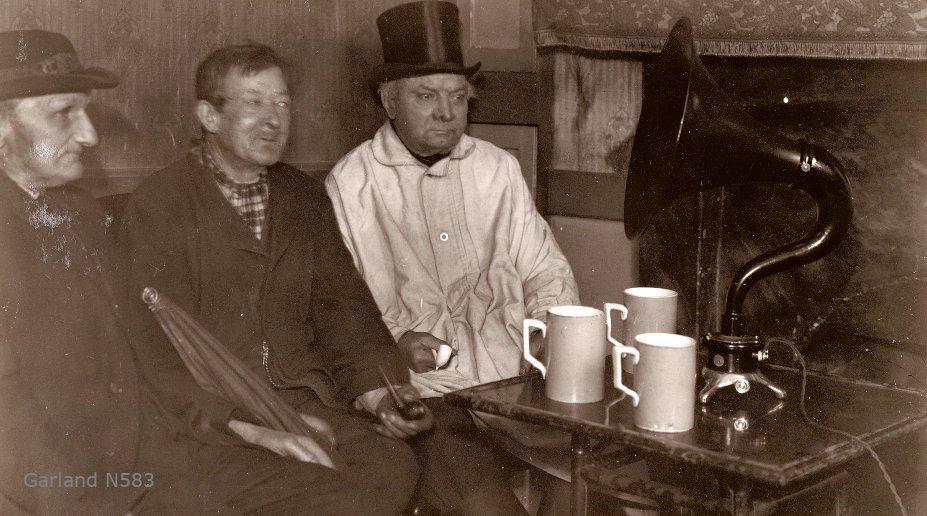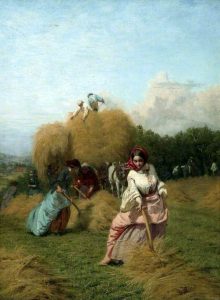Here we are. Fed up with the pandemic. Fed up with hobbies, as illustrated above. I even had to cover the damn tomatoes again this week as we approach mid-May just to be sure. But sunshine, warmth and all things good are promised from here on out… you bet… so I am looking forward these days. Speaking of hobbies, I even have a second beer related project, one in addition to Project X. Let’s call it Project Y, shall we? Project X has a longer arc for sure but Project Y is cheery, quite positive. You know how these things are.
And, well, for Project Y as part of my due diligence I had to go hunting for a particular beer book, a particular history of a particular patch of the Earth. And I was struck by something as I dug through my shelves – how many creative and interesting beer books came out from about 2008 to about 2017 or so. That was the Golden Era, wasn’t it. I was buying a book once a month back then. When things were not about craft selling to big beer or then about craft adulterating the beer with fruity adjuncts… or non-beers like seltzers and sodas. Could you imagine writing a style guide to seltzers? A few people are dripping tears upon the keyboard even as they read those words… because that is what they are doing.
Anyway, not me. I have Projects X and Y to keep me smug and warm as this lockdown continues. Speaking of which, is this true?
Seltzers were the inevitable end. Throughout history people have always desired beer that tastes less like beer. The death of gruit. The death of smoke beer. The death of highly roasted beers. And now, the death of beer.
There seems to be a lot of seltzer based anxiety in the beer writing world as much as the beer brewing world. What to write about when there is nothing to discuss? Add alcohol, flavouring and carbonation to water. Bingo! Same story over and over.
Interestingly and instead of books, some beer writers appear to be engaging in a relatively recent sort of paid web event. Pete Brown is running book club events on his back catalogue where you can join in the discussion for a fee. One of the most successful books of the Golden Era, his 2009 book Hops and Glory, was the topic last night. And Gary Gilmore is appearing at a conference this very afternoon, speaking on the topic of Margaret Simpson: Pioneer Publican-Brewer in Upper Canada. A paper will follow. And Pellicle is holding a second anniversary beer bash where, at least in the UK, you can buy a selected six pack and drink along. I might pop in, if only at the end of that one given it is still at the end of the work day my time. I highly recommend jumping on these sorts of things as with any luck, like apparently interesting beer books themselves, they will also be a thing of the past once the vaccines are all in arms and the world moves on to its next norm.
What else is going on? Well, an apology to Martin who left a comment on last weeks post that I didn’t get around to noticing needed approval for three days. Such are the consequences and resulting administrative burden from the flotsam, jetsam and other forms of abuse that usually appear in the comments. But chit chat is always welcome so, again, sorry for the delay.
Liam at BeerFoodTravel has posted a second discussion about the history of hops in Ireland, this week covering the 1800s in a detailed calendar entry style like this:
1835 – Under the headline ‘Irish Hops’ a Belfast newspaper states that The Commission of Revenue Inquiry recommended that Irish grown hops should pay a similar rate of duty as those grown in England. (There are also mentions of duties on ‘Irish hops’ in 1843, 1845 and 1846 in various parliamentary records.) Once again this would indicate that hops were possibly still being grown somewhere on the island and in enough quantities to warrant discussion in parliament.
In other hop news, an email that gave me pause came into the spam filters this week from the otherwise reputable firm Yakima Chief Hops:
In 2017, YCH launched a line of innovative hop products known as Cryo Hops® using a cryogenic hop-processing technology that separates whole cones into two components—concentrated lupulin and bract. These concentrated lupulin pellets provide brewers with maximum aroma impact while reducing the negative effects experienced with brewing hoppy beers. The Cryo Hops® brand has since been recognized on beer labels worldwide. YCH has combined this novel process with cutting-edge hop lab analysis techniques to create Cryo Pop™ Original Blend, formerly known as trial blend TRI 2304CR.
 Really? See, I just want Fuggles. I want a bucket worth of Fuggles pitched into a hot bubbling malty wort out of which comes something called ale. I don’t want the “TM” or the “R” all that much either. How pleasing it was, then to read the announcement of nearish-byish Aston Brewery’s new mascot, Fermie. The logo was too small for my preferred slogan “Consume me very soon or time will ravage me!!!”
Really? See, I just want Fuggles. I want a bucket worth of Fuggles pitched into a hot bubbling malty wort out of which comes something called ale. I don’t want the “TM” or the “R” all that much either. How pleasing it was, then to read the announcement of nearish-byish Aston Brewery’s new mascot, Fermie. The logo was too small for my preferred slogan “Consume me very soon or time will ravage me!!!”
In the UK, trade interests have no doubt rallied effectively to block the right to know what goes into your body should this initiative to list calories in beer get come to pass:
Public Health Minister Jo Churchill has told colleagues she wishes to launch a 12-week consultation on the plans. They would force any business with 250 or more people to publish the calorie information about drinks – meaning the change in the law would hit most major pub chains. Churchill points to the fact that 7-8% of drinkers’ calorie intake come from booze, with lower socio-economic households and those already overweight benefiting the most from the policy. But last night critics slammed the plans as “madness” saying they would be a hammer blow to an already struggling part of the economy.
Not quite clear on the scope of her jurisdiction. And apparently neither was Minister Churchill as the whole thing was scrapped within minutes… days… well, a few weeks for sure. A fair bit further along the continuum of health and booze, a grim bit of good story telling popped up on BBC Scotland this week, the story of a violent addict who got past it.
Related? Are we really to believe that we are all supposed to not notice the information quality provided by influencers but we are all supposed to sneer a bit a bloggers? I might have to revisit the hierarchies of content control but it is becoming clear that one of the hallmarks of expertise more and more is not actually publishing anything. All a bit topsy turvy.
Related? Nice bit of beer porn out of France this week from GBH. The text is characteristically precious GBH-style likely state funded tourism PR mixed with an NBC Olympics level coverage sweet heartwarming personal story but, well, there’s a lot of nice imagery in there.*
Note: “Historic England believe that only 10 to 15% of identifiable maltings survive.”
Is that it? Barrel bottom scraped? A bit of a quiet week. Keep hunting. And I’ll learn again about all the good stuff that I missed on Saturday. And, speaking of which, please don’t forget to check out the weekly updates from Boak and Bailey mostly every Saturday, plus more with the weekly Beer Ladies Podcast, at the weekly OCBG Podcast on Tuesday and sometimes on a Friday posts at The Fizz as well. There is a monthly sort of round up at The Glass. There is more from the DaftAboutCraft podcast, too. And the Beervana podcast. And sign up for Katie’s weekly newsletter, The Gulp, too. And check out the Atlantic Canada Beer Blog‘s weekly roundup. Plus follow the venerable Full Pint podcast. And Fermentation Radio with Emma Inch. There’s the AfroBeerChick podcast as well! And also look at Brewsround and Cabin Fever. And Ben has his own podcast, Beer and Badword – when he isn’t in hiatus as at the mo, more like timeout for rudeness. And remember BeerEdge, too. Plus a newcomer located by B+B: The Moon Under Water.
*I had to preserve this response from Tom C. on FB: “Made me laugh so hard, I almost scalded myself with the single-farm free-trade coffee that I was sipping in the waning darkness of the early dawn, after having been so heartily accosted by my dog, ravenous for his morning gruel, that I relented and fed him, putting off for the moment my Thursday-morning ritual of dallying over Alan’s beery news roundup. And, then my day began.“













